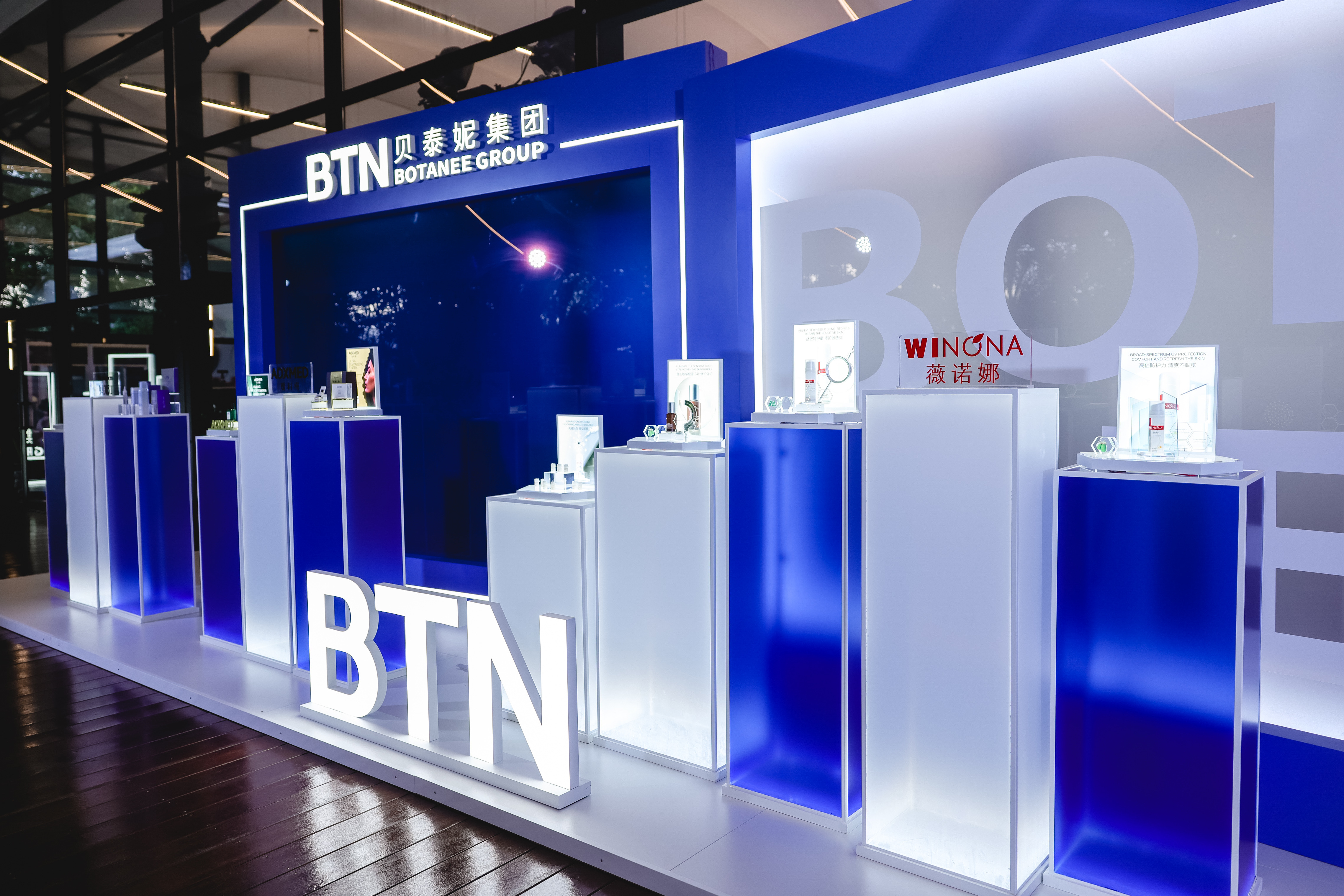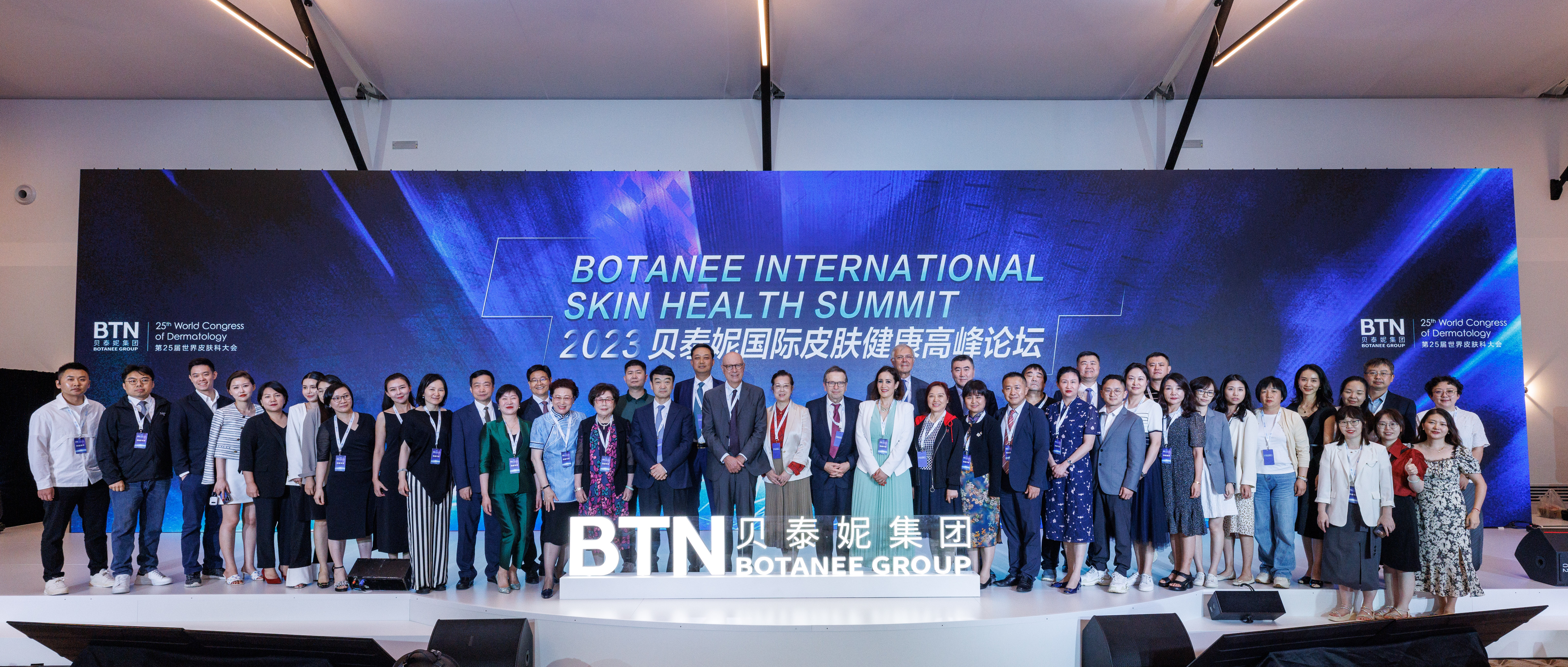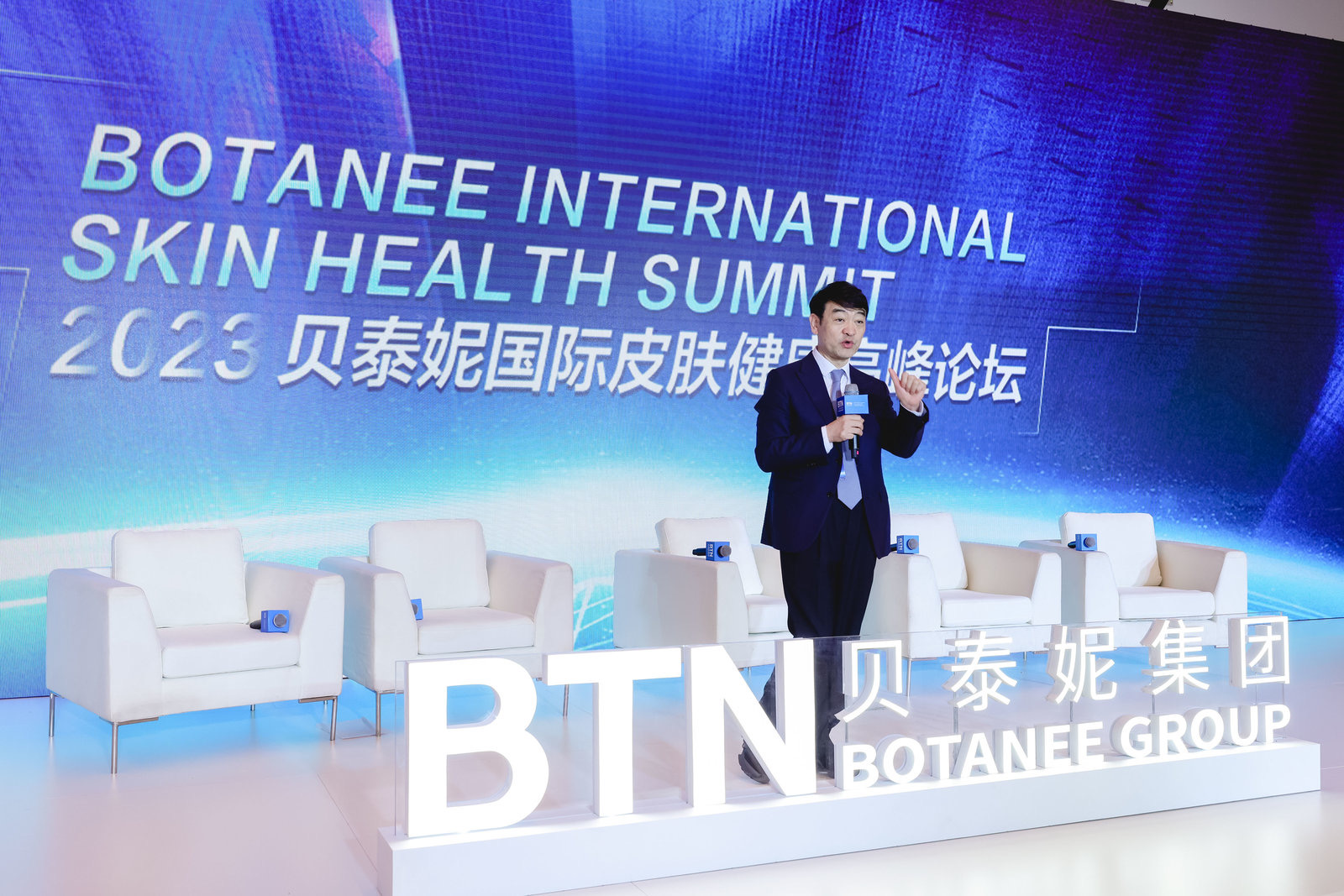 Botanee to Double Revenue by 2026 as Chinese Skincare Giant Builds Skin Health Ecosystem
Botanee to Double Revenue by 2026 as Chinese Skincare Giant Builds Skin Health Ecosystem(Yicai Global) July 13 -- Yunnan Botanee Bio-Technology Group plans to double its revenue in the next three years as the Chinese skincare company sets its sights on creating a global skin health ecosystem that revolves around its top skincare brand Winona and three new brands.
The China sales of Winona, which has made Botanee’s name in the sensitive skin market, topped CNY5 billion (USD695.7 million) last year, seizing 23.2 percent of the country’s dermatology-grade skincare market. Yet Kunming, southwestern Yunnan province-based Botanee has even bigger plans.
In the past decade, Botanee was solely focused on developing its Winona brand, Chairman and President Guo Zhenyu said at the World Congress of Dermatology held in Singapore earlier this month, where he presented his vision for the next decade to industry players. This is the third time that Botanee has been invited to take part in the congress, which is now in its 134th year.

“However, in the next 10 years, Botanee will not just be known for Winona, but will build an entire skin health ecosystem that will encompass three segments, namely dermatology-grade makeup, artificial intelligence-driven skin tests and a medical cosmetology platform,” Guo said at the Botanee International Skin Health Summit held at the congress, at which Botanee presented its four brands to the world for the first time.
And, based on this ambition, Guo has set the company the goal of doubling its business revenue in the next three years.
Secret to Success
Science has always been the secret to Botanee’s success, since it was set up 13 years ago.
In the beginning, Guo decided to develop dermatology-grade skincare products using evidence-based medicine. As a result, Botanee has invested heavily in scientific research over the years.
In 2022, Botanee’s expenditure on R&D more than doubled from the year before to CNY255 million (USD35.5 million), accounting for 5 percent of its business revenue, according to the company’s latest annual report. Botanee also hiked its R&D talent pool by 65.6 percent to 391 scientific researchers.
Botanee spearheaded the building of Yunnan’s Characteristic Plant Extraction Laboratory last year. And in the future, the group will focus on making technological breakthroughs with a special focus on consumer health.
Some 184 papers on basic research and effect verification related to Winona have been published in core journals and archived by the Science Citation Index so far, setting a very high bar in the profession.
“If you intend to be indomitable in the market, your brands and products have to be extremely strong. This is a necessary precondition for market entry,” Guo said at the congress, to which many Fortune Global 500 firms were invited.
With this strategy, Winona has accumulated a huge fan base. The brand’s customer loyalty is very strong and the re-sale rate of its products is as high as 37 percent, according to Winona’s store on Alibaba Group Holding’s e-marketplace Tmall.
Last year, Winona’s sales topped CNY5 billion and the compound annual growth rate of dermatology-grade skincare products has been at 23 percent for the past three years. Winona is still in its teenage years and there is a long way to go before it becomes fully mature, Guo said. “ single brand can still have great potential, even if sales hit CNY15 billion, he added.
His views conform with industry data. The size of China’s beauty and skincare market will reach CNY817.7 billion (USD113.7 billion) by 2026, according to market research firm Euromonitor International. And the penetration rate of dermatology-grade skincare products is expected to grow to 10 percent in 2026 from 5 percent in 2021, while the dermatology-grade makeup market will be worth CNY81.8 billion (USD11.4 billion) by 2026, with a compound annual growth rate of 23.6 percent between 2021 and 2026.
New Growth Engines
Chinese consumers are very particular about scientific skincare procedures, ingredients and efficacy, and they are very careful about seeking safe and effective products for their skin.
The huge beauty and personal care market poses both opportunities and challenges. Revenue from the Winona brand accounted for over 97 percent of Botanee’s total revenue last year, according to its 2022 financial results.
Botanee aims to become a top skin health brand in China and even worldwide, Guo said. Botanee hopes to first build a new skin health ecology in China and then go global to become a skincare product leader by 2026. But it is not enough to rely on a single brand to dominate the skincare market, so Botanee has chosen to develop new growth engines, he added.

“If you ask me whether I want a CNY5 billion brand or five brands with a total market size of CNY5 billion, I will definitely choose the former. It means that the brand has become a big player and a market leader in its segment,” Guo said. In his view, in order to beat the competition, you have to become a leading brand. For this reason, Botanee did not shift focus to other brands until last year when Winona’s revenue reached CNY5 billion.
New Horizons
Based on this success, Guo has set the company the goal of doubling revenue in the next three years. Guo is now promoting three other brands, namely baby skincare brand Winona Baby, professional skincare brand Aoxmed and Beforteen, a supplier of AI-driven skincare solutions.
Chinese mothers are paying more attention to the condition of their babies’ skin, especially now that those born in the 1990s are the main child-rearing group in the country. Some 42.5 percent of Chinese mothers know about and value children’s skincare, according to a recent report released by parenting website Ci123.com.
Treating eczema and moisturizing are the top two baby skincare requirements, both accounting for 20 percent, followed by hydration at 18 percent, according to the Infant Skincare Industry Research Report of the first three quarters in 2022 by Guoji.Pro.
Winona Baby, which was launched in 2020, is positioned as a mid-to-high-end baby skincare brand. Relying on Yunnan province’s unique plant resources, Winona Baby has developed high-quality products through the integration of industry, academia, research and medicine to help children’s skin health.
Botanee also brought Aoxmed, a professional skincare brand that it launched at the end of last year, to the congress. Developed by Botanee for more than 10 years, Aoxmed provides professional skin solutions that combine the two major consumer scenarios of aesthetic medicine and cosmetology.
“We believe that we have good products that can help people who want to become beautiful to recover better after surgery,” Yan Shuxian, head of dermatology at SinoUnited Health, said during a roundtable at the Botanee International Skin Health Summit on July 5.
Botanee debuted Beforteen, a new brand developed by a subsidiary, at the congress. Unlike other skincare brands, Beforteen not only makes products but uses AI to provide users with personalized food-medicine-cosmetic solutions based on their specific conditions. For example, customers can upload photos of their faces to Beforteen’s WeChat mini program for AI image recognition and classification. Beforteen will provide medical advice, skincare products and medicines based on the results.
“Focusing on a brand to build on was Botanee’s strategy in the early days. But now that Winona's market positioning has been upgraded from ‘sensitive’ to ‘sensitive plus,’ with the launch of a series of products such as sunscreen for sensitive skin, whitening products for sensitive skin and so on, we have also moved from operating only one brand to running multiple ones,” Guo said.
Editor: Kim Taylor